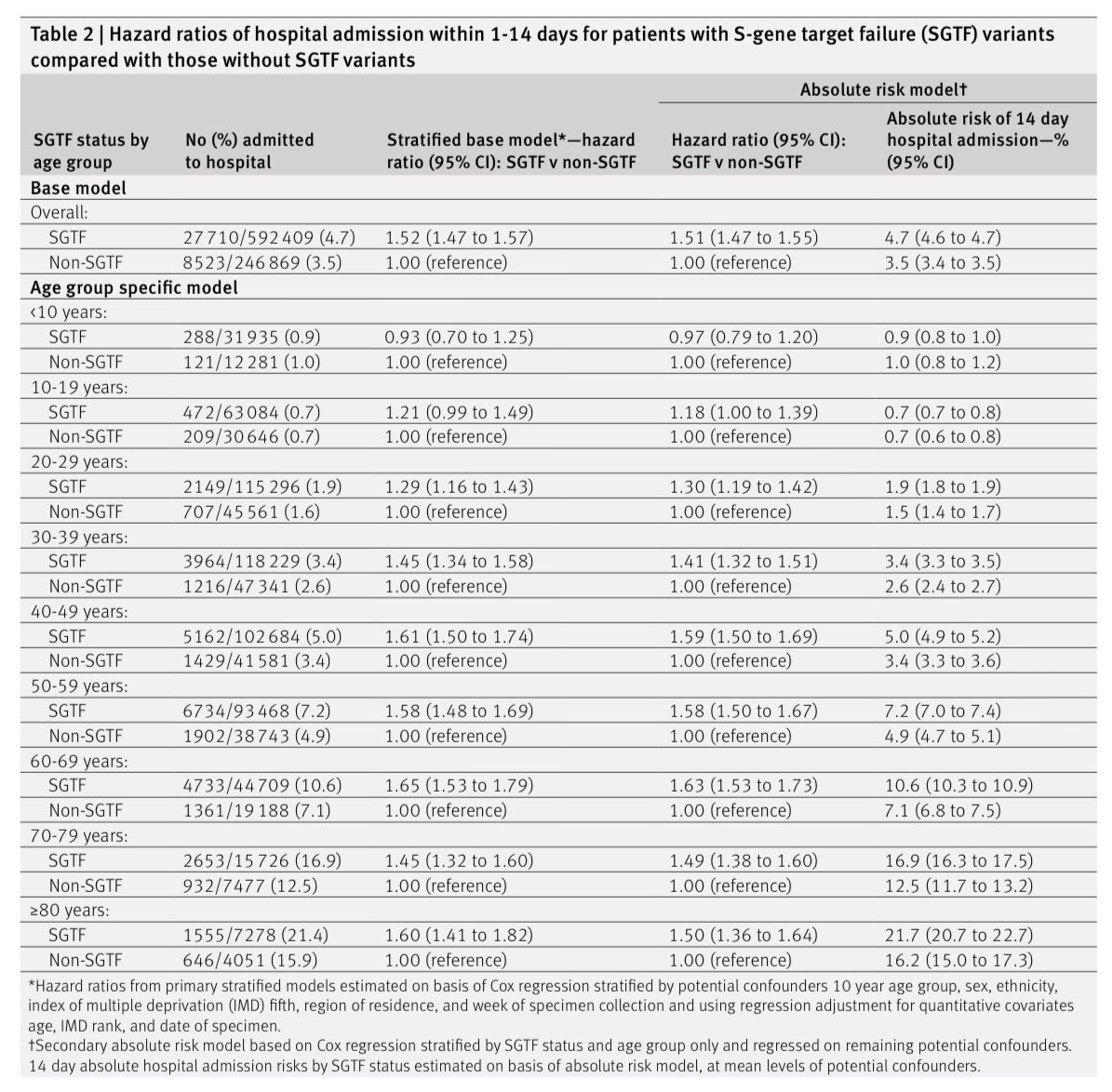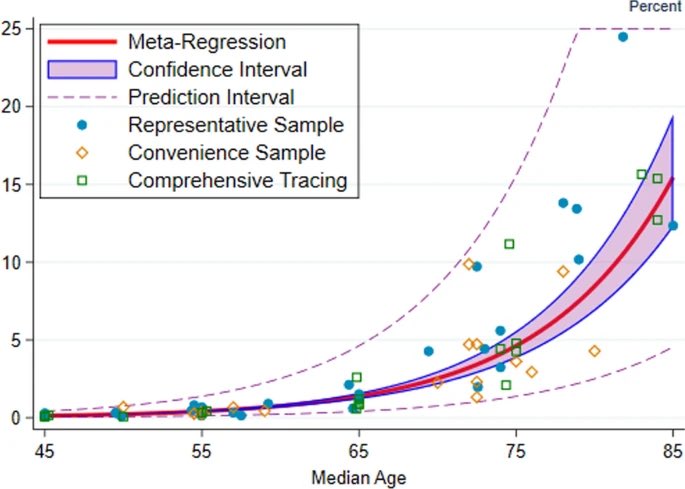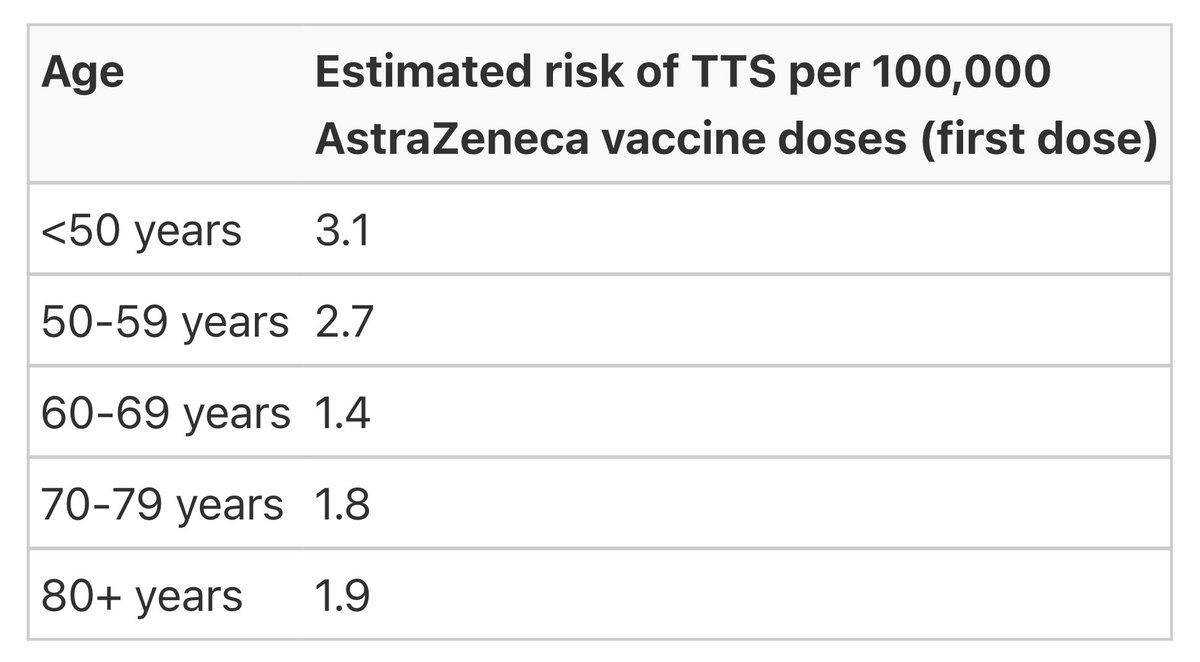
I’m not confident the Sydney delta variant outbreak will be contained. This fundamentally changes the risk/benefit ratio of the AstraZeneca vaccine for those over 60.
Even a single dose provides >70% protection against hospitalisation & is worth the 0.00002% risk of blood clots.
Even a single dose provides >70% protection against hospitalisation & is worth the 0.00002% risk of blood clots.
https://twitter.com/joeabcnews/status/1408628263333765121
A person aged over 60 years has at least a 7% chance of being hospitalised if they become infected with the original strain of the virus.
This rises to at least 10% with the alpha variant (B.1.1.7).
The risk likely exceeds 20% with the delta variant.
bmj.com/content/373/bm…
This rises to at least 10% with the alpha variant (B.1.1.7).
The risk likely exceeds 20% with the delta variant.
bmj.com/content/373/bm…

The risk of death from COVID-19 also rises steeply with age.
The figure below shows the estimated proportion of people who die after becoming infected with the original strain of the virus.
Remember the delta variant is associated with additional risk.
link.springer.com/article/10.100…
The figure below shows the estimated proportion of people who die after becoming infected with the original strain of the virus.
Remember the delta variant is associated with additional risk.
link.springer.com/article/10.100…

While use of the AstraZeneca vaccine will not be sufficient to achieve herd immunity, it will keep people out of hospital.
This must be the immediate aim now that the delta variant is circulating in Sydney.
This must be the immediate aim now that the delta variant is circulating in Sydney.
Here’s preliminary data from the UK showing the estimated effectiveness of the AstraZeneca & Pfizer vaccines against hospitalisation for COVID-19:
khub.net/documents/1359…
And here’s the estimated risk of blood clotting caused by the AstraZeneca vaccine:
health.gov.au/news/atagi-sta…
khub.net/documents/1359…
And here’s the estimated risk of blood clotting caused by the AstraZeneca vaccine:
health.gov.au/news/atagi-sta…

• • •
Missing some Tweet in this thread? You can try to
force a refresh














